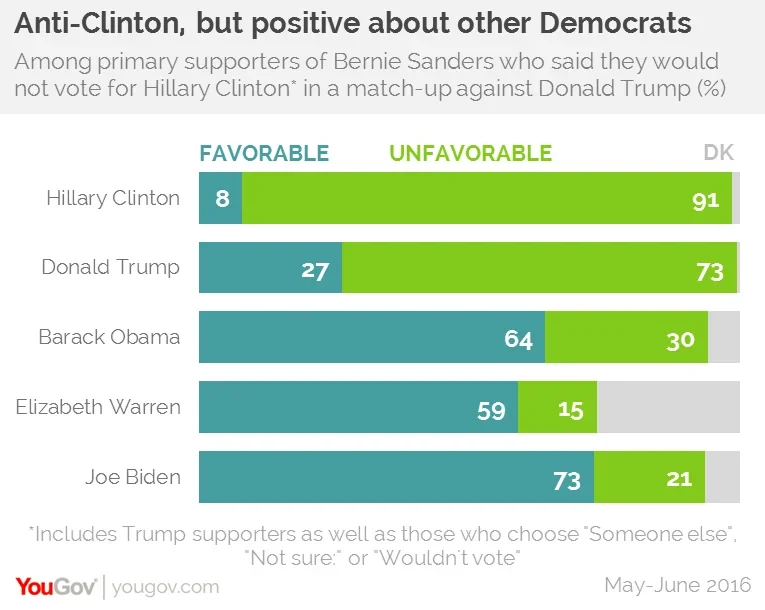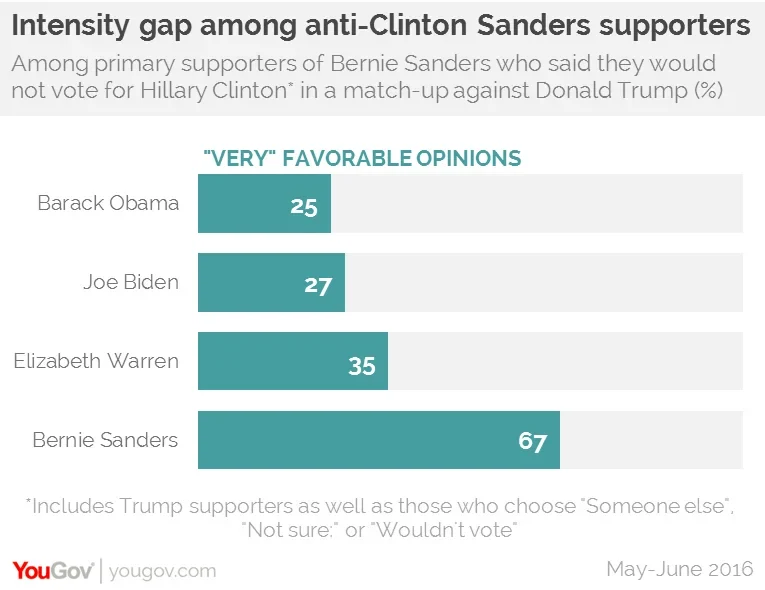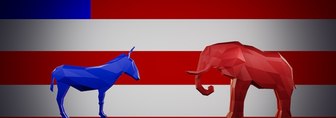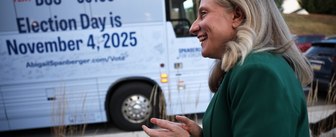Many Sanders supporters don't like Clinton, but do like some of her potential allies in the Democratic Party
Bernie Sanders has yet to exit the race, but Hillary Clinton has already declared victory and her attention is turning towards mending the divisions within the Democratic Party – specifically, how to bring Bernie Sanders primary supporters onboard with her campaign against Republican nominee Donald Trump. Historical polling data shows it that the vast majority of Clinton's own supporters in 2008 eventually came around to support Barack Obama, even though many were reluctant at first. But Clinton worked hard to get her backers to accept Obama in 2008, something Sanders has not committed to doing. So, who else might help?
Looking directly at YouGov/Economist data* on those who supported Sanders in the primary (including Democrats as well as independents who “lean” Democratic) but don’t support Clinton in a match-up against Trump – some actively support Trump, but most fall into the "neither" category – they are overwhelmingly negative about the party's presumptive nominee. Only 8% view Clinton favorably, and this is even less than the 27% who view Trump favorably. However, they are much more positive about several other prominent Democratic politicians who are likely to support her candidacy: Elizabeth Warren, Barack Obama and Joe Biden have favorability ratings of 59%, 64% and 73%, respectively.

This doesn’t mean these Sanders defectors are crazy about the Democratic Party itself, which Sanders himself only recently joined to run for president. 50% have an unfavorable opinion of the party, against 45% favorable. Another note of caution is the intensity of feelings. While two-thirds have “very favorable” opinions of Sanders, the “very favorable” proportion ranges between 25% and 35% for Obama, Warren and Biden.

In other words, it’s not hard to imagine many in this group turning on someone they otherwise like if the individual appears to be unfairly pushing Sanders around. We’ll see.
*Data collated from YouGov/Economist Polls conducted May 20-23 and June 5-9. Editor's note: in an earlier version the year erroneously listed was 2015. The correct year is 2016.
Economist/YouGov poll archives can be found here.






